As 2023 draws to a close, scholars and staff in the Global Economy and Development program are looking back on their work this year and thinking ahead about how to make strides toward a more sustainable and equitable world in 2024.
Vice President and Director Brahima S. Coulibaly kicks us off with a video message reflecting on the state of the global economy and the issues that are top of mind for 2024.
Reason for optimism despite unprecedented global shocks
Message from the Vice President and Director, Brahima S. Coulibaly
Inequality and the transformative power of technology
Zia Qureshi
First, my greetings and best wishes to all colleagues for a happy holiday season. This is also a time to reflect on one’s work over the past year. Besides other activities, my work at Brookings this year has focused on two research projects, both revolving around the theme of how technology is transforming our economies—and societies. Against a background of rising inequality and associated social discontent, the first project examines the opportunities and challenges of promoting a broad sharing of the benefits of technological progress. It analyzes how digital technologies are altering growth and distribution dynamics, within and across economies, and draws implications for public policy to promote more inclusive growth. A book, co-edited with Brahima S. Coulibaly and titled “Harnessing Technology for Inclusive Prosperity: Growth, Work, and Inequality in the Digital Era,” will be published next spring.
The second project addresses how digital transformation and other forces—such as geopolitical developments, resurgence of nationalist industrial policies, and climate change—are shaping the future of globalization. It examines the shifting dynamics in industry, trade, and finance in the global economy and what they mean for national governments and the multilateral cooperation framework. A book, co-edited with Daehee Jeong of the Korea Development Institute (KDI) and titled “New Global Dynamics: Managing Economic Change in a Transforming World,” will be published next summer.
This work aims to make a contribution to informing public debate and policy on some of the big issues of our time. It involves collaboration with a number of scholars both inside and outside Brookings and I would like to acknowledge their excellent contributions to our collective endeavor. I would also like to express my thanks for the support received from the Brookings Artificial Intelligence and Emerging Technology Initiative and Brookings’s partnership with KDI.
Public policy for better development outcomes in Africa
Aloysius Uche Ordu
Looking back, the year 2023 was consequential for at least two reasons. First, it was a difficult year for the African continent as most countries faced multiple synchronized headwinds, including record high inflation, severe currency depreciations vis-à-vis the U.S. dollar, and heavy debt burdens (notably Zambia, Ghana, and Ethiopia) at a time when concessional funding has continued to dwindle. These challenges severely constrained countries’ ability to settle their international financial obligations, curtailed growth, and adversely affected job creation for the burgeoning population of unemployed youths.
Second, 2023 also marked the 15th anniversary of the Africa Growth Initiative (AGI) at Brookings. This milestone provided us with an excellent opportunity to reflect on our journey thus far and to reaffirm our goal: to inform public policy for better development outcomes in Africa. In response to the rapidly changing global and regional economic and political environments, we sharpened our strategic thrust to five key thematic areas: development financing, climate change, technology and innovation, jobs and structural transformation, and trade and regional integration. Underscoring these five main themes are cross-cutting themes of governance, gender, and youth that are interconnected and relevant to the work we do.
Looking forward to 2024, we are excited to roll out our annual flagship report, Foresight Africa 2024. This edition of our report is fully aligned with AGI’s strategic directions as indicated. We look forward to launching the report in January 2024 in Washington, D.C., and to high-level convenings in collaboration with our vastly expanded list of partners across the continent as we continue the debate about Africa’s priorities. I am heartened that many senior policymakers, private sector leaders, heads of foundations, civil society organizations, youths, and scholars from think tanks and academia and from all of Africa’s language groups, have contributed to this year’s edition. We thank you for your continued support and collaboration.
Education systems that work for all
Arushi Sharma, Jennifer L. O’Donoghue, Rebecca Winthrop
Reflecting on 2023, the Center for Universal Education (CUE) at Brookings is excited to share the highlights and milestones that shaped our continued commitment to transforming education systems to ensure all young people develop the full range of skills they need. The Education Systems Transformation Symposium, hosted by CUE, marked a pivotal moment where over 200 actors united in a day of engaging workshops, roundtables, and panel discussions. We launched our new strategy for the coming years, emphasizing holistic education, locally defined priorities, and collaborative efforts to bridge research and practice across diverse education ecosystems. In June, CUE’s Real-time Scaling Labs concluded a comprehensive five-year research effort, examining themes, insights, and lessons that emerged from the scaling process, along with intriguing divergences. Post-COVID, CUE has resumed hosting global convenings for its networks, bringing together diverse stakeholders. The Echidna Global Scholars Alumni Network met in Nepal, while the team on Research on Scaling the Impact of Innovations in Education (ROSIE) gathered in Kenya. In the fall, we welcomed a new cohort of local education leaders to the Echidna Global Scholars fellowship program and officially launched the Knowing-Doing Network Leadership Coalition (KDNLC), a global impact network combining CUE with 10 leading civil society organizations deeply rooted in diverse local communities worldwide. Additionally, CUE’s Costing and Financing team launched the Childhood Cost Calculator (C3), a free online tool for costing child- and youth-centered programs across the education, health, and social protection sectors.
As we embark on 2024, CUE remains focused in its commitment to addressing the complex landscape of global education. At our annual symposium on education systems transformation to be held in April, in collaboration with Special Olympics International, we are set to convene key stakeholders to explore the transformative possibilities for inclusive education systems and, more importantly, to address the question “What would it take to transform education systems to be truly inclusive for learners with disabilities?”
The Millions Learning initiative will share insights from the ROSIE project, delving into equity dimensions, strategic research use, and the role of scaling champions. The collaborative mixed-method research initiative SPARKS will explore explores how mindsets, values, experiences, systems, structures, and other intangible factors influence pedagogy in local contexts through collaborative research. The Family, School, and Community Engagement (FSCE) team is gearing up for an impactful 2024, promising a series of open-access tools including the Global Family, School, and Community Engagement Rubrics and the Conversation Starter Tools, aimed at fostering relational trust and shared visions across diverse communities. The Learning and Action Alliance for Girls’ Agency (LAAGA) has been working to co-create understandings around how education ecosystems can support the exercise of girls’ agency across diverse contexts, and in 2024 will publish four country case studies and a policy brief, with a series of in-person engagement activities with local actors.
As we navigate the challenges of global learning faced by young people and communities, in 2024, CUE remains dedicated to serving young people worldwide, upholding the values of equity, agency, inclusion, and quality through our diverse initiatives.
Advancing global sustainable development
Alexandra Bracken, John W. McArthur
2023 has been another terrific year for the Center for Sustainable Development (CSD) as we continue to advance knowledge, networks, and policy recommendations toward global sustainable development and better implementation of the Sustainable Development Goals in all countries, at all scales (SDGs).
Our work on the interconnected challenges of climate and sustainable development was a major priority this year. Amar Bhattacharya was a lead author and the executive secretary of the influential second report of the Independent High-Level Expert Group on Climate Finance, launched at COP28, which helped inform the UAE Declaration on Climate Finance endorsed by the leaders of a dozen countries. This built on an extensive body of related work, including Amar’s opening session presentation of six priorities for world leaders at the June Summit for a New Global Financing Pact in Paris and Homi Kharas’ contributions as lead author of two major reports by the G20 Independent Expert Group on strengthening the multilateral development banks. These efforts in turn intersected with the release of Keys to Climate Action, a Brookings volume co-edited by Bhattacharya, Kharas, and John W. McArthur, which curated a cross-section of distinguished contributors from around the world to describe challenges and opportunities for inclusive and sustainable growth in Emerging Markets and Developing Economies (EMDEs), holding aside the special case of China.
In 2023, CSD scholars helped shape a range of high-level debates on development system reform. In a pioneering study released in April, for example, Caren Grown and co-authors took stock of the evidence on “gender mainstreaming” across the United Nations and major humanitarian organizations. As part of a CSD compendium focused on priorities for the Sustainable Development Goals, she also emphasized the role of city-level policy makers in addressing caregiving issues disproportionately affect women and girls. In May, George Ingram hosted high-level representatives from USAID and civil society to drill down into elements of the newly released USAID Framework.
Though the Reimagine Rural Policy initiative, Tony Pipa provided powerful insight and analysis for U.S. federal policymakers on the unique needs of rural communities. His Reimagine Rural podcast achieved significant reach, averaging 1,000 downloads per episode across all U.S. states.
Our annual 17 Rooms flagship, co-hosted with The Rockefeller Foundation, spurred innovative international-scale action agendas from 17 distinct groups, each focused on next steps for a specific SDG challenge. Highlights include multifaceted approaches to climate action, pioneering uses of technology for poverty reduction, and investments in local systems to drive global change. Meanwhile, CSD collaborated with a range of partners on bottom-up 17 Rooms-X experiments around the world. This included universities shedding light on how to translate SDG alignment into concrete local actions—Jacob Taylor summarized the key takeaways. Highlighting the interface of technology and regional collaboration, Jacob also explored how improved AI governance in Asia can lead to mutual benefits, including risk mitigation and sustainable economic growth.
Looking ahead to 2024, CSD is committed to advancing all our interconnected workstreams with vigor, including a growing emphasis on aligning the private sector with global sustainable development goals. As the year comes to a close, we extend our deepest gratitude to everyone in the global CSD network for their dedication and contributions. The holiday season reminds us to celebrate collective achievements and recharge with optimism for the new year.
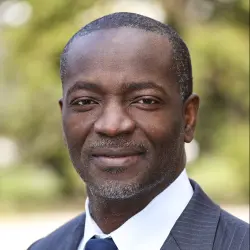
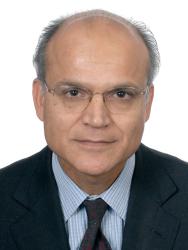
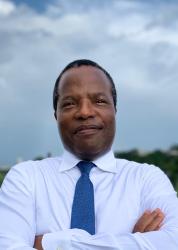
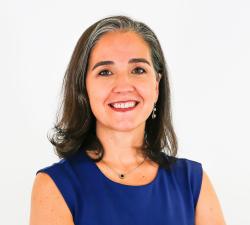
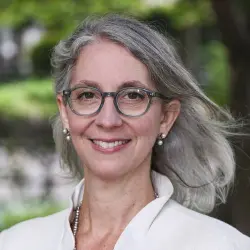
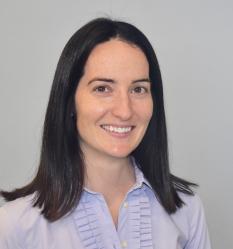
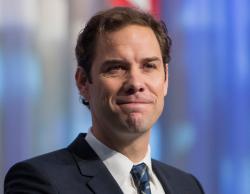
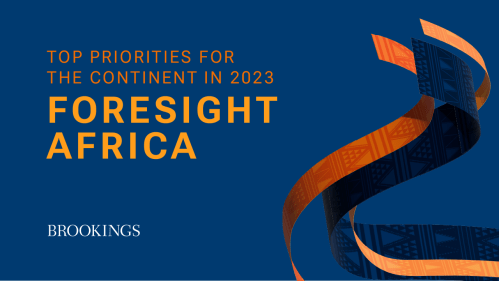


Commentary
A look back at 2023—and what’s in store for 2024—from the Global Economy and Development program
December 22, 2023